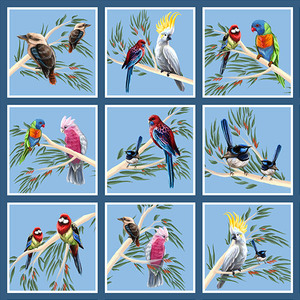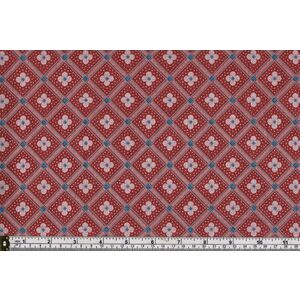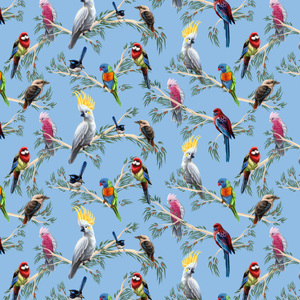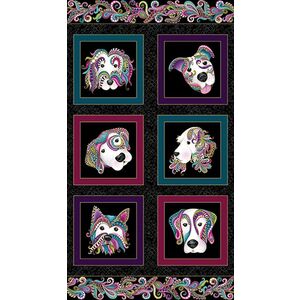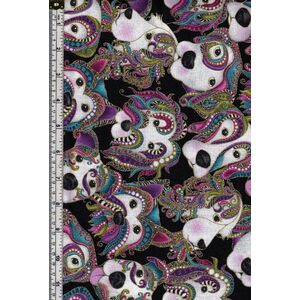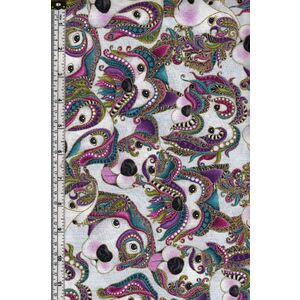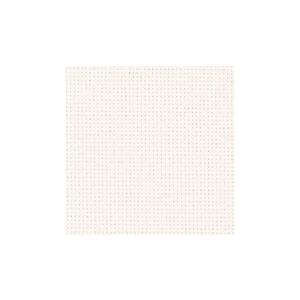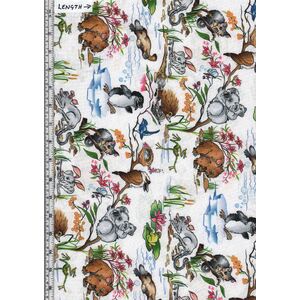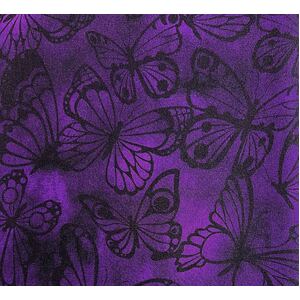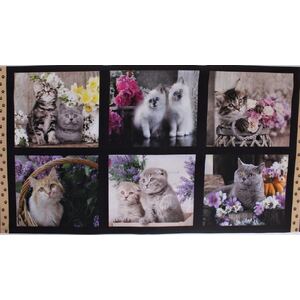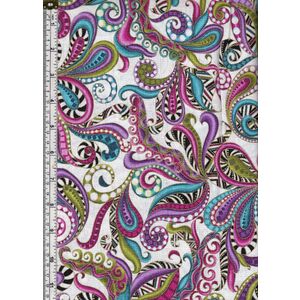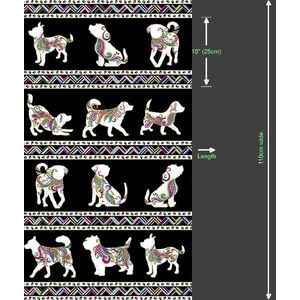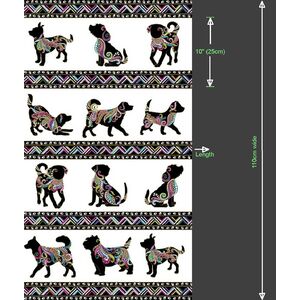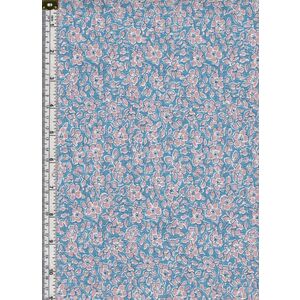100% Cotton Fabrics
NB:- 100cm = 1 Metre or approx 39" (Inches)
At JM Embroideries, we celebrate the timeless elegance and unparalleled versatility of cotton. Dive into the world of cotton fabrics with us and discover the myriad benefits, uses, and care techniques that make cotton a staple in the textile industry.
Benefits of Using Cotton Fabrics
Comfort and Breathability: Cherished for their softness and breathability, this type of fabric is an ideal choice for clothing that feels comfortable against the skin in any climate. The natural fibres allow air to circulate freely, keeping you cool in warm weather and cozy in cooler conditions.
Durability and Longevity: Known for its strength, cotton withstands wear and tear, promising durability that lasts. With each wash, its fibres become softer without losing their integrity, ensuring your cotton creations look and feel fabulous for years to come.
Hypoallergenic Properties: Natural fibres are gentle on the skin, making it the perfect choice for those with sensitive skin or allergies. Its hypoallergenic nature means it won’t irritate the skin, offering a safe and comfortable option for everyone.
Absorbent and Moisture-Wicking Qualities: Cotton's ability to absorb and wick away moisture makes it a favourite for activewear and summer apparel. It keeps you dry and comfortable throughout the day, no matter the activity.
Easy Care and Maintenance: It is as easy to care for as it is comfortable to wear. It can be machine washed and, in most cases, tumble dried, simplifying your laundry routine.
Different Uses of Cotton Fabrics
From the realm of fashion, where cotton fabric shapes everything from casual t-shirts to elegant dresses, offering unparalleled comfort, style, and versatility, to the comfort of your home, where it transforms into cozy bed linens, plush towels, and chic curtains, enhancing living spaces with its natural beauty, cotton stands as a cornerstone. Its durability extends beyond everyday uses into industrial applications like tents, tarps, and canvas, proving its robustness. In the medical field, cotton's hypoallergenic and absorbent qualities become indispensable, finding uses in bandages, gauze, and other healthcare essentials. Moreover, cotton's texture and adaptability make it a favoured material among artists and crafters for creating canvases, quilts, and a plethora of other creative endeavours, showcasing its vast applicability and appeal across diverse domains.
Care and Maintenance of Cotton Fabrics
To care for cotton fabrics, it's best to wash them in cool to warm water to preserve their colour and structure, followed by tumble drying on a low setting or air-drying to maintain their integrity. Before washing, pre-treat any stains with a mild detergent, and steer clear of bleach to keep the fabric's colour vibrant and its strength intact over time. Cotton's resilience to high heat simplifies ironing, allowing for easy wrinkle removal and a neat appearance. For storage, keep cotton materials in a cool, dry place away from sunlight to prevent fading and uphold the fabric's quality. Contrary to the belief that cotton is high-maintenance, its upkeep is actually straightforward; with the right care techniques, cotton remains a durable and easy-to-maintain fabric choice.
At JM Embroideries, we're proud to offer a diverse collection of 100% cotton fabrics, catering to all your creative needs. Explore our selection and order online today!
FAQs
Is 100% cotton actually 100% cotton?
Yes, this fabric is made entirely from cotton fibres, which means no other fibres are blended with it. The term '100% cotton' ensures that the fabric consists exclusively of cotton, which is valued for its softness, breathability, and absorbency.
Despite the versatility, there are misconceptions that all cotton fabrics are the same; however, qualities such as fibre length and the type of weave significantly influence a fabric's texture and durability.
Cotton's natural properties make it a versatile material used in a wide range of products. It's especially favoured in clothing for its comfort and hypoallergenic properties, making it ideal for everything from casual t-shirts to high-end fashion.
The qualities and characteristics of 100% cotton can vary greatly. High-quality cotton is typically softer, more durable, and resistant to pilling. This versatility and the inherent qualities of cotton make it a popular choice for everyday items such as towels, bed linens, and underwear.
For those seeking genuine and high-quality cotton products, it is recommended to purchase from trusted retailers like JM Embroideries, ensuring that you receive authentic 100% cotton fabrics that meet your needs.
What is the quality of 100% cotton fabric?
Cotton fabric is highly regarded for its quality due to its all-natural fibre content. Cotton is durable, soft, hypoallergenic, environment-friendly, and breathable, making it comfortable for all-day wear and suitable for a wide variety of textile projects. At JM Embroideries, our 100% cotton fabrics are sourced to ensure they meet high standards of strength, colourfastness, and minimal shrinkage, making them ideal for both apparel and craft applications.
The quality of 100% cotton fabric is influenced by several key factors:
Cotton Fiber Length and Strength: Longer cotton fibres (also known as staples) are associated with higher quality because they yield smoother and finer yarns. Strong fibres enhance the durability and appearance retention of the fabric.
Growing Conditions and Region of Cultivation: The climate and soil conditions of the region where cotton is grown significantly affect the quality of the cotton. Optimal conditions produce stronger, more resilient fibres.
Harvesting and Ginning Processes: These steps are crucial as they need to preserve fibre length and purity. Mechanical harvesting and careful ginning minimize damage and contamination.
Spinning and Weaving Techniques: Advanced spinning and weaving technologies ensure tight, uniform weaving that contributes to the strength and feel of the fabric.
Finishing and Dyeing Processes: High-quality finishing improves the feel and appearance of cotton fabric, while superior dyeing methods result in vibrant, long-lasting colours.
To recognize high-quality cotton fabric, consider the following:
Touch and Feel Test: It should feel soft and sturdy, without any roughness.
Visual Inspection: Look for consistency and uniformity in the texture. The fabric should not have any irregularities or flaws in the weave.
Thread Count and Density: Generally, a higher thread count indicates a tighter weave and a smoother, more durable fabric.
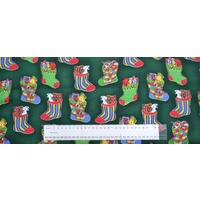
Sew Easy Christmas Selections Christmas Stockings GREEN 110cm Wide Cotton Fabric
$3.25
$6.97

